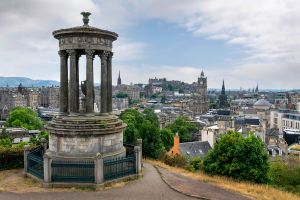Va. Senate Committee Passes Amendment to Allow Prayer in All Public Places
A new proposed amendment for the Virginia state Bill of Rights that would call on all public places and schools to allow prayer and religious activity passed a Senate Committee last week.
A Senate Committee in the Virginia General Assembly endorsed Senate Joint Resolution 287 on Jan. 29. Republican Sens. William M. Stanley, Jr., and Charles W. "Bill" Carrico sponsored the bill that would allow public officials, students, and others the right to participate in religious activity as long as they were not disruptive. The new bill will also allow for students to be dismissed from school assignments and presentations that conflict with their religious beliefs.
Stanley informed the panel that this amendment was crafted to ensure that people of all religions would not be penalized for expressing their right to religious beliefs. "All religions are under attack," Stanley said. "People of faith are under attack."
To illustrate how the bill would work, he said that a Muslim high school student could ask to be excused from dissecting a fetal pig in biology class because Islam views pigs as unclean, without affecting his/her grade.
The bill can partially draw its history back to Former Navy Chaplain Gordon James Klingenschmitt, who was fired and court-martialed in 2006 for praying "in the name of Jesus," outside of a church chapel. In 2008, six chaplains resigned in protest over the order, saying they should be allowed to pray according to their conscience.
Klingenschmitt delivered 6,805 paper petitions in support of the prayer bill to the 15 Senators on the committee. He also led a crowd of 1,000 in a rally to protest the ban on praying in Jesus' name outside then Governor Tim Kaine's mansion in November 2008. That policy was reversed by Gov. Bob McDonnell in 2010.
But not all organizations are pleased with the endorsement to amend this bill. Claire Guthrie Gastanaga, executive director of the American Civil Liberties Union, believes that the bill would lead to an unconstitutional establishment of religion. She believes that this is another way to allow religion back into schools with separation between church and state.
The proposed amendment was passed by an 8-6 vote along party lines. However, the amendment has quite a few more steps before being implemented into the constitution.
To amend the state constitution, the resolution would have to pass the General Assembly twice, with a general election for the House of Delegates between the two legislative sessions, and then receive approval from voters in a referendum.




























